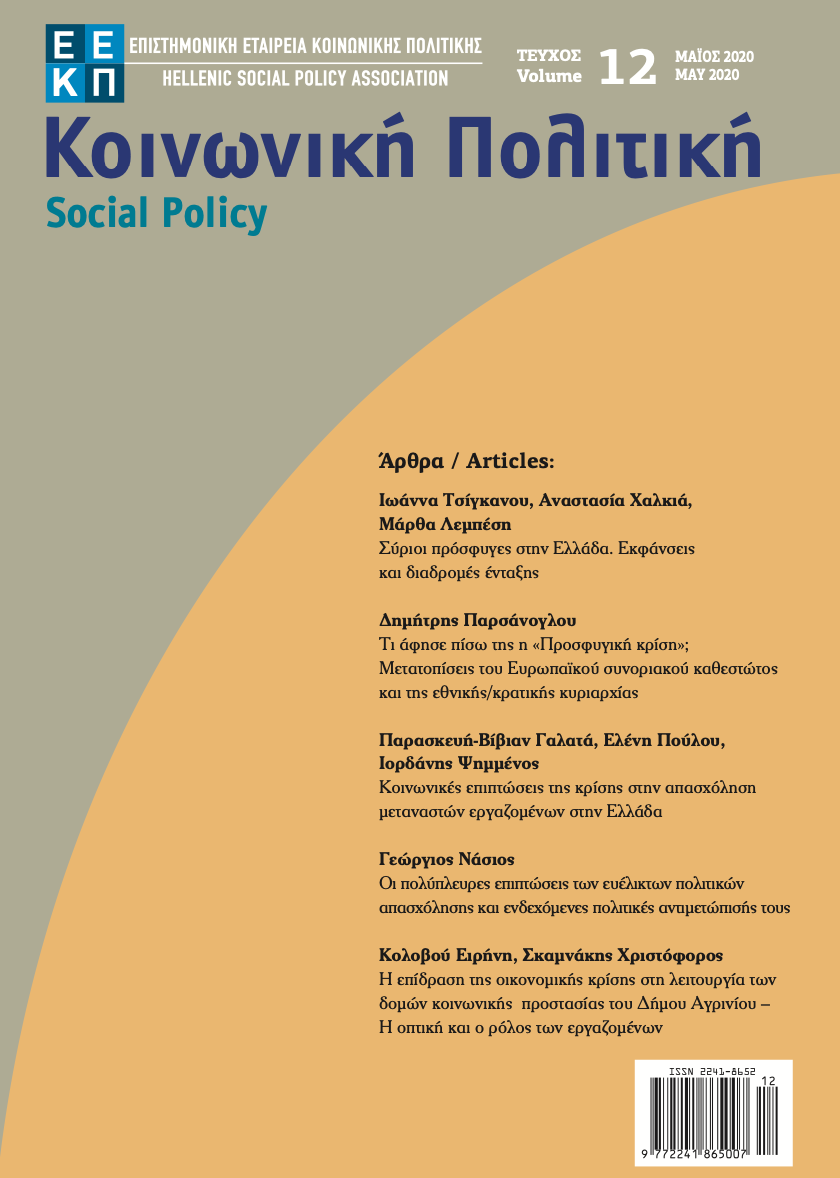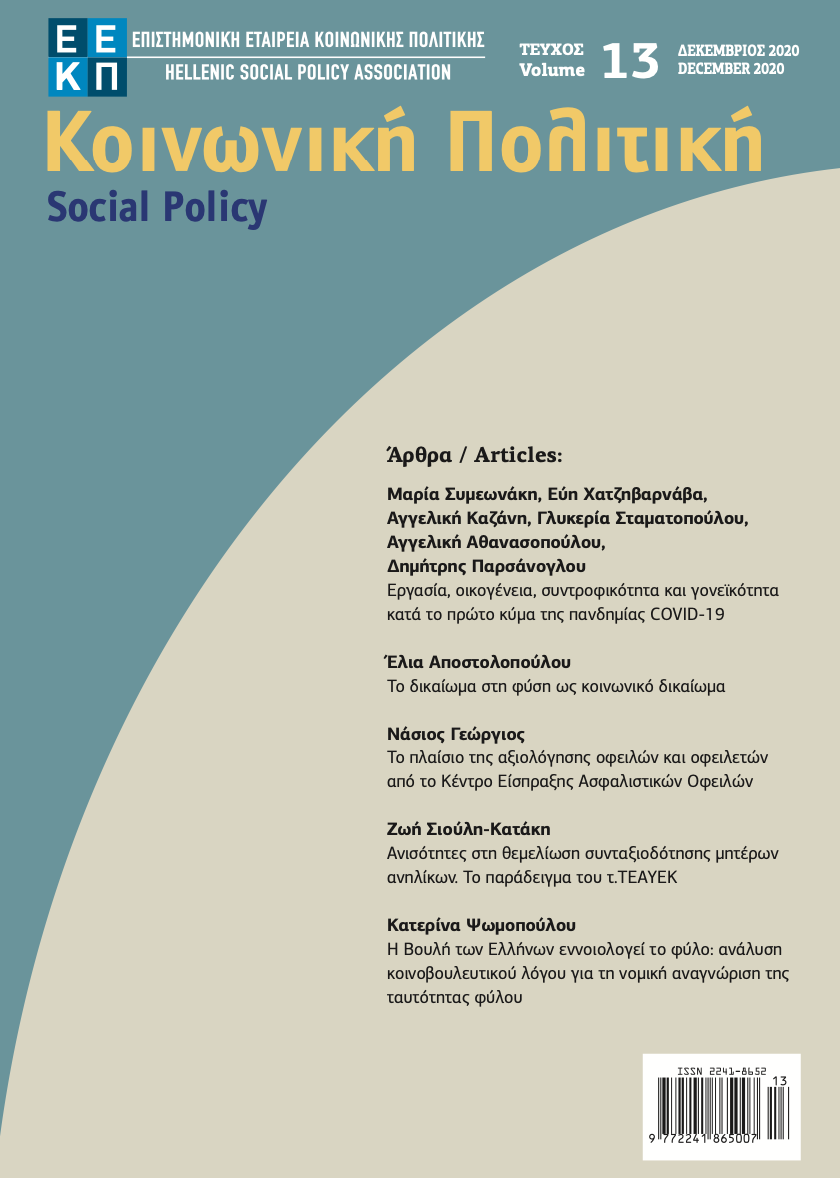Τι άφησε πίσω της η «Προσφυγική κρίση»; Μετατοπίσεις του Ευρωπαϊκού συνοριακού καθεστώτος και της εθνικής/κρατικής κυριαρχίας
Περίληψη
Σε αυτό το άρθρο επικεντρωνόμαστε στις πιθανές μετατοπίσεις που πυροδότησε η πρόσφατη «προσφυγική κρίση». Εστιάζοντας στην ελληνική περίπτωση, όπου μπορεί κανείς να ανιχνεύσει αυτές τις μετατοπίσεις σε μια υβριδική αλλά και παραδειγματική μορφή, θα διερωτηθούμε γύρω από τους τρόπους με τους οποίους η διαχείριση της «κρίσης» και η εθνική κυριαρχία τέθηκαν σε δοκιμασία με πρωτόγνωρη ένταση. Επιχειρούμε μια διττή προσέγγιση: από τη μια πλευρά, διερωτόμαστε για τη σημασία που προσλαμβάνει ο ανθρωπιστικός παράγοντας καθώς και η εμπλοκή πολλαπλών διαφορετικών υποκειμένων που ήταν και είναι παρόντα στο ευρύ πεδίο της «διαχείρισης της προσφυγικής κρίσης»· από τη άλλη, προσπαθούμε να στοχαστούμε γύρω από τις επιπτώσεις που προκαλεί αυτή η «εισβολή» ατομικών, υπερεθνικών και μη κρατικών υποκειμένων σε υπηρεσίες, δραστηριότητες και παρεμβάσεις οι οποίες ανήκουν/ανήκαν στην αποκλειστική σφαίρα της κρατικής κυριαρχίας.
Λεπτομέρειες άρθρου
- Πώς να δημιουργήσετε Αναφορές
-
Παρσάνογλου Δ. (2021). Τι άφησε πίσω της η «Προσφυγική κρίση»; Μετατοπίσεις του Ευρωπαϊκού συνοριακού καθεστώτος και της εθνικής/κρατικής κυριαρχίας. Κοινωνική Πολιτική, 12, 23–38. https://doi.org/10.12681/sp.29023
- Τεύχος
- Τόμ. 12 (2020)
- Ενότητα
- Άρθρα

Αυτή η εργασία είναι αδειοδοτημένη υπό το CC Αναφορά Δημιουργού 4.0.
Οι συγγραφείς των άρθρων που δημοσιεύονται στο περιοδικό διατηρούν τα δικαιώματα πνευματικής ιδιοκτησίας επί των άρθρων τους, δίνοντας στο περιοδικό το δικαίωμα της πρώτης δημοσίευσης. Άρθρα που δημοσιεύονται στο περιοδικό διατίθενται με άδεια Creative Commons 4.0 και σύμφωνα με την άδεια μπορούν να χρησιμοποιούνται ελεύθερα, με αναφορά στο/στη συγγραφέα και στην πρώτη δημοσίευση για μη κερδοσκοπικούς σκοπούς και με δικαίωμα τροποποίησης μόνον με παρόμοια διανομή (αν αναμείξετε, τροποποιήσετε, ή δημιουργήσετε πάνω στο υλικό, πρέπει να διανείμετε τις δικές σας συνεισφορές υπό την ίδια άδεια όπως και το πρωτότυπο).




